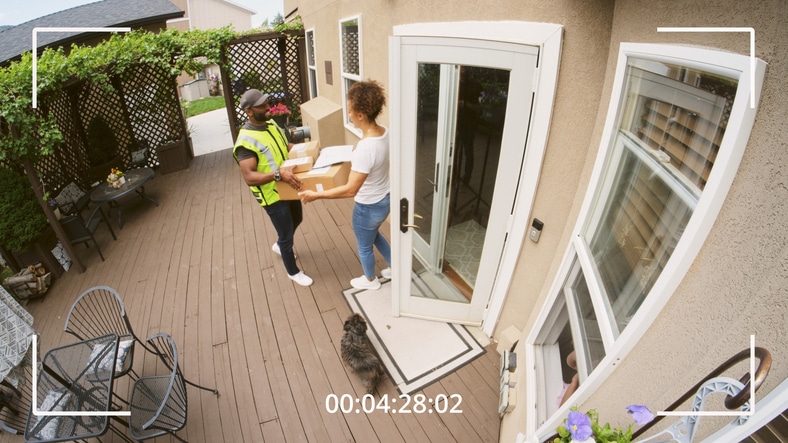
In today’s world, security cameras have become essential for homeowners seeking to safeguard their residences. The increasing use of these devices reflects a growing desire to deter crime and ensure peace of mind.
However, as we integrate these technologies into our lives, it’s crucial to balance enhanced security’s benefits with privacy concerns. This blog post explores how you, as a homeowner, can achieve this balance effectively.
Many homeowners install security cameras to enhance safety. Visible security cameras on the outside of the home act as a deterrent to potential intruders, reducing the likelihood of criminal activity. When criminals see cameras, they often think twice about targeting a property, knowing their actions will be recorded. This deterrent effect provides homeowners with peace of mind, knowing their homes are less likely to be chosen for unlawful activities.
Security cameras are invaluable for monitoring and documenting incidents. Whether capturing an attempted break-in or simply keeping an eye on package deliveries, these devices provide a reliable record of events. This documentation can be cricitical when dealing with law enforcement or insurance companies, offering concrete evidence to support claims and investigations.
When installing security cameras, it’s essential to choose appropriate locations. Exterior doors, driveways, and other entry points are prime spots for camera placement. These areas are the most likely entry points for intruders, making them the logical focus for surveillance. However, it’s equally important to avoid placing cameras where they might capture private spaces, such as neighbors’ windows or public areas, as this can lead to privacy concerns and even potential legal issues.
To respect the privacy of everyone involved, ensure that camera angles cover only your property. Adjust camera settings and positions to avoid capturing unnecessary footage of neighboring properties or public walkways. By focusing solely on your home, you can maintain high security without infringing on others’ privacy.
Transparency is vital when it comes to home security cameras. Informing family members and guests about the presence of these devices ensures that everyone is aware of the surveillance measures in place. This open communication fosters trust and prevents any feelings of violation from unexpected monitoring.
Using signs to inform visitors about surveillance practices is another effective way to enhance transparency. Clear, visible signs indicating that security cameras are in use help set expectations and respect visitors’ privacy. This simple step can go a long way in creating a respectful and secure environment for everyone.
Once the footage is recorded, it’s crucial to store it securely. Unauthorized access to recorded footage can lead to significant privacy breaches. Utilize secure storage solutions, such as encrypted cloud services or local storage devices, to protect your footage from unauthorized viewing or tampering.
Establishing clear retention policies for recorded footage is essential for balancing security and privacy. Determine how long to keep the footage and set up automated deletion schedules to remove old recordings. This practice helps manage storage space and respects the privacy of those recorded by ensuring that unnecessary footage is not kept indefinitely.
Many modern security cameras come equipped with privacy masks and zones, allowing you to block out certain areas within the camera’s field of view. This functionality is particularly useful for protecting the privacy of neighboring properties or sensitive areas within your own home. By setting up these privacy zones, you can tailor your surveillance system to focus only on the areas that matter most for your security needs.
Motion detection is another feature that can enhance both security and privacy. By configuring your cameras to record only when motion is detected, you minimize unnecessary recording and reduce the amount of footage stored. This targeted approach ensures that your cameras capture relevant activity while avoiding continuously recording empty scenes.
Incorporating security camera and smart home integration into your home is smart for enhancing safety and peace of mind. However, it’s vital to approach this technology responsibly, balancing the need for security with respect for privacy. You can achieve this balance by carefully selecting camera locations, maintaining transparency with household members and guests, securely managing footage, and utilizing smart camera features.
At Security Systems of America, we understand the importance of protecting your home without compromising privacy. Our team of residential security experts is dedicated to helping homeowners make informed decisions about security solutions. Contact us today for more information on choosing and setting up home security cameras that respect privacy.